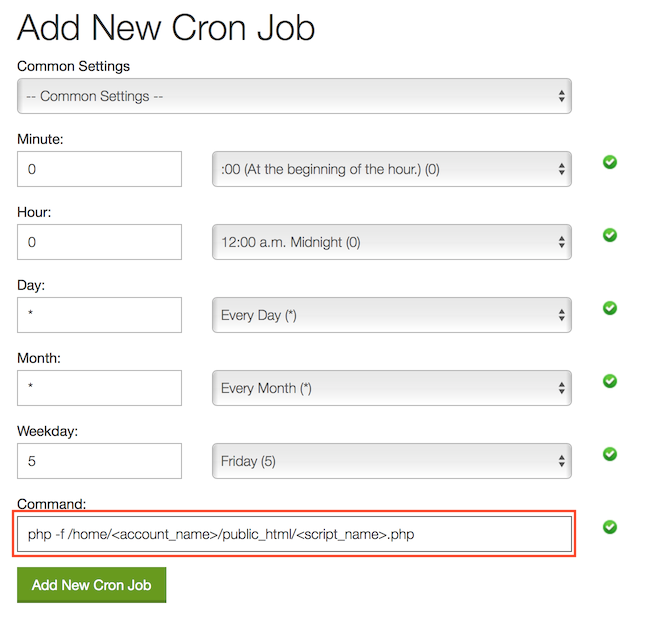I am assuming that the Linux cPanel is used in this case.
The first thing that is needed is to find the name of the home directory. This is displayed in the top left on the main cPanel page. The name of this directory is the same as the cPanel login, so if your login as 'bob_the_builder', the home directory will be /home/bob_the_builder.
Now with the home directory name handy we can schedule the Cron Job itself. Head down to the 'Advanced' section and click on 'Cron Jobs'.
Under the Add New Cron Job section, select the scheduling. There is a handy drop down that gives a number of usual configurations to pick from. After picking the scheduling times, the important part is to enter the command correctly.

The command is specified like this:
Cron Command
php -f /home/<account_name>/public_html/<script_name>.php
This assumes that the PHP script is in the public_html directory i.e. the root directory of the web site. Simply put in your account name and script name to make it work.
After clicking Add New Cron Job the page should display it as below...
So this will run the PHP script on a regular interval, every Friday in my example. This will also email the output of the job to the email address specified on the Cron Jobs page. If you don't want to get these emails, add this to the end of the command: > /dev/null 2>&1. This makes the command look like this...
Cron Command without Email
php -f /home/<account_name>/public_html/<script_name>.php > /dev/null 2>&1
If you need a way to passing parameters to your script, check out this article - How to pass parameters to your PHP script via the command line.
-i



